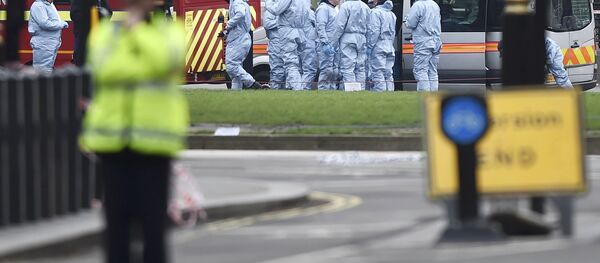Hours after the attack on the Saint Petersburg metro between the Sennaya Ploshchad and Tekhnologichesky Institut stations, western media were already finding suggesting foul play on the part of Russian President Vladimir Putin.
Sky News reported that the attacks would be used by Putin as an excuse to clamp down on anti-government protests, giving police swingeing new powers.
Our diplomatic editor @DominicWaghorn says the explosion in St Petersburg could be used to justify further restrictions on protest groups pic.twitter.com/6yQ9rxk8XM
— Sky News (@SkyNews) 3 April 2017
"I think we can draw conclusions already about what this is likely to lead to," he said. "But also, it is highly likely they use this as the grounds for dealing with the unrest they have been having in Russia," Sky reported.
Meanwhile, John Podhoretz of the New York Post said: "Interesting that the bomb blasts in Petersburg come so hard upon the demonstrations."
The BBC Moscow Correspondent Sarah Rainsford joined in the speculation, with a story suggesting the attack had been a 'distraction' deliberately to take attention away from the demonstrations and anti-Putin sentiment.
The quickfire commentary by the media echoes similar unfounded statement made in the aftermath of the London attacks of March 22, after which Channel 4 news was forced to make a humiliating apology after naming the attacker as a man who was actually in prison at the time of the attack.
Hours after the incident, Channel 4 News named Abu Izzadeen as the perpetrator of the terror incident, formally known as Trevor Brooks.
Channel 4 News Editor Ben de Pear was forced to issue an apology after the channel's senior home affairs correspondent, Simon Israel named Izzadeen, until he found out his source was wrong and that Izzadeen was, in fact, serving a prison sentence at the time of the attack.



